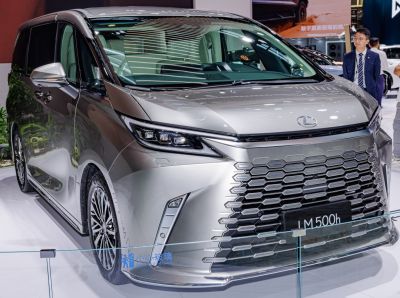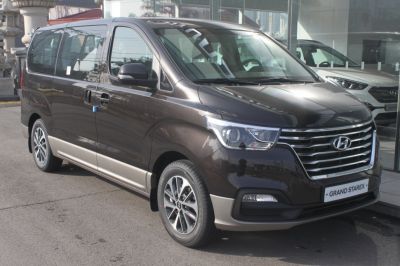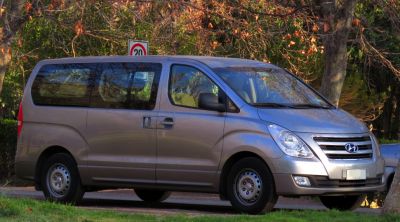 2018 Hyundai H-1 II Cargo (facelift 2018) Dimensions, Size & Specs
2018 Hyundai H-1 II Cargo (facelift 2018) Dimensions, Size & Specs
Measurements of the 2018 Hyundai H-1 II Cargo, engineered for optimal performance and comfort
| Dimensions | |
|---|---|
| Length: | 5150 mm202.8 in16.9 ft |
| Width: | 1920 mm75.6 in6.3 ft |
| Height: | 1935 mm76.2 in6.3 ft |
| Ground Clearance: | 190 mm7.5 in0.6 ft |
| Trunk Capacity: | 2511 liter88.7 cu ft |
| Trunk Capacity (Max): | 4426 liter156.3 cu ft |
| Weight Specifications | |
| Curb Weight: | 2030-2059 kg4475-4539 lbs |
| Maximal permitted Weight: | 3200 kg7055 lbs |
| Roof Load: | 80 kg176 lbs |
| Tire Specifications | |
| Rims Size: | 16-inch rims:
|
| Tire Size: |
|
The Hyundai H-1 II Cargo facelift introduced in 2018 and currently in production is a versatile minivan designed primarily for cargo and commercial use, merging practicality with ample space. Measuring 5150 mm (202.8 inches) in length, 1920 mm (75.6 inches) in width, and standing 1935 mm (76.2 inches) tall, this vehicle is sizable enough to accommodate substantial cargo while still being manageable in urban environments. Weighing between 2030 to 2059 kg (4477 to 4539 lbs) curb weight and having a maximum permissible weight of 3200 kg (7055 lbs), the H-1 II Cargo is built for heavy-duty tasks.
One of its standout features is its generous luggage capacity, offering 2511 liters (88.7 cubic feet) in the regular seating configuration and expanding dramatically to 4426 liters (156.3 cubic feet) when the rear seats are folded down, making it ideal for transporting bulky goods. The ride height or ground clearance of 190 mm (7.5 inches) supports a good balance between urban drivability and the capability to handle uneven surfaces typical in delivery routes.
The minivan runs on 16-inch rims (6.5J x 16) fitted with 215/70 R16 tires, providing a stable and comfortable ride. The roof can support an additional load of up to 80 kg (176 lbs), which adds further utility for rooftop carriers or additional storage solutions.
Overall, the Hyundai H-1 II Cargo facelift (2018-present) is a robust and spacious minivan suited for businesses requiring a reliable transport vehicle with significant cargo capacity and practical dimensions, making it an excellent choice in the competitive commercial van segment.
Discover the standout features that make the 2018 Hyundai H-1 II Cargo a leader in its class
Have a question? Please check our knowledgebase first.
The Hyundai H-1 II Cargo facelift model from 2018 to present measures 5150 mm (202.8 inches) in length, 1920 mm (75.6 inches) in width, and 1935 mm (76.2 inches) in height. These dimensions give it a commanding presence suitable for its role as a spacious minivan designed primarily for cargo and passenger comfort.
This generation of the Hyundai H-1 II Cargo has a curb weight ranging between 2030 kg to 2059 kg (4475 to 4540 lbs), depending on configuration and equipment. The maximum permissible gross vehicle weight is 3200 kg (7055 lbs), indicating it can carry a significant payload, which is ideal for commercial users.
The Hyundai H-1 II Cargo offers an impressive luggage capacity of 2511 liters (88.6 cubic feet) with all seats in place. When the rear seats are folded down, this capacity dramatically increases to 4426 liters (156.3 cubic feet), making it highly versatile for carrying bulky cargo or large amounts of goods.
The H-1 II Cargo provides a ride height or ground clearance of 190 mm (7.5 inches), which is quite sufficient for urban driving as well as some mild off-road or rough surface conditions. This clearance helps in maintaining stability and reduces the risk of undercarriage damage when carrying heavy loads or driving on uneven roads.
This vehicle generation comes equipped with rims sized at 6.5J x 16 and tires sized 215/70 R16. These specifications contribute to a balance of ride comfort, load-bearing capability, and road grip, essential for a commercial minivan that often carries heavy cargo.
Given its considerable size—5150 mm (202.8 inches) in length, 1920 mm (75.6 inches) wide, and 1935 mm (76.2 inches) high—the Hyundai H-1 II Cargo may not comfortably fit in a typical residential garage, which normally measures around 2.4 to 2.7 meters (8 to 9 feet) in width and about 5 to 6 meters (16 to 20 feet) long. Owners should verify garage dimensions beforehand to ensure sufficient space for parking and maneuvering.
The 2018 facelift of the H-1 II Cargo builds upon its predecessor with subtle dimensional enhancements while maintaining its core design. Typically, the facelifted model features similar width and height but may have slight adjustments in length and curb weight to improve cabin space and cargo capacity. The facelift also brought design and utility improvements without drastically changing the footprint, ensuring familiarity while enhancing functionality.
Compared to competing minivans and cargo vans, such as the Ford Transit Custom or Mercedes-Benz Metris, the Hyundai H-1 II Cargo is competitive, especially in cargo volume and payload capacity. Its 4426-liter (156.3 cubic feet) with rear seats folded is on the higher end, offering ample space for commercial applications. While slightly wider and taller than some rivals, it maintains good ground clearance and maneuverability for an urban cargo van, positioning it as a practical option in its segment.
The roof load capacity of the Hyundai H-1 II Cargo is rated at 80 kg (176 lbs). This allows users to safely carry additional cargo or roof-mounted equipment such as roof boxes or racks without compromising vehicle stability or safety. This feature enhances the vehicle's practicality for transporting larger or awkwardly shaped items beyond the internal cargo space.
The H-1 II Cargo facelift balances functionality, size, and comfort, making it ideal for both commercial and personal uses. Its spacious interior, large cargo capacity, efficient ground clearance, and robust construction support heavy-duty use. The moderate size allows it to navigate urban environments, while features like practical roof load and stable tire/rim combinations contribute to reliability. It also benefits from Hyundai's focus on safety and comfort, making it a well-rounded vehicle in the minivan and cargo van segments.
Discover similar sized cars.

| Production: | 2023-present |
|---|---|
| Model Year: | 2024 |
| Length: | 5125 mm201.8 in |
| Width: | 1890 mm74.4 in |
| Height: | 1930-1955 mm76.0-77.0 in |

| Production: | 2018-present |
|---|---|
| Model Year: | 2018 |
| Length: | 5150 mm202.8 in |
| Width: | 1920 mm75.6 in |
| Height: | 1925 mm75.8 in |

| Production: | 2018-present |
|---|---|
| Model Year: | 2018 |
| Length: | 5169 mm203.5 in |
| Width: | 1920 mm75.6 in |
| Height: | 1925 mm75.8 in |

| Production: | 2015-2018 |
|---|---|
| Model Year: | 2015 |
| Length: | 5150 mm202.8 in |
| Width: | 1920 mm75.6 in |
| Height: | 1935 mm76.2 in |

| Production: | 2015-2018 |
|---|---|
| Model Year: | 2015 |
| Length: | 5150 mm202.8 in |
| Width: | 1920 mm75.6 in |
| Height: | 1925 mm75.8 in |

| Production: | 2008-2015 |
|---|---|
| Model Year: | 2008 |
| Length: | 5150 mm202.8 in |
| Width: | 1920 mm75.6 in |
| Height: | 1925 mm75.8 in |

| Production: | 2008-2015 |
|---|---|
| Model Year: | 2008 |
| Length: | 5150 mm202.8 in |
| Width: | 1920 mm75.6 in |
| Height: | 1925 mm75.8 in |
